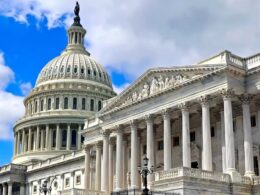Bitpanda, Europe’s largest cryptocurrency exchange, has announced that it has successfully obtained a license to offer virtual asset services (VASP) in Norway, marking a significant milestone in its regulatory approvals journey.
Expanding Regulatory Approvals
On October 19th, Bitpanda, based in Vienna, revealed on its official X account that it has become one of the first foreign cryptocurrency exchanges to receive a VASP license in Norway. This license is a requirement for any business looking to provide services like cryptocurrency exchange, custody, or trading in the country.
With the issuance of the VASP license, Bitpanda now has legal permission to offer a wide range of crypto-related services to its Norwegian customers. This includes trading, custody, and exchange services. Notably, Bitpanda has already obtained licenses for cryptocurrency trading and payment services in other European regions, including Austria, Germany, France, the Czech Republic, and Sweden.
Meeting Regulatory Standards
To secure the VASP license in Norway, Bitpanda had to demonstrate the implementation of robust security measures to safeguard user funds and compliance with all relevant laws and regulations. This license further solidifies Bitpanda’s position as Europe’s most regulated broker and enables the company to extend safe and secure digital asset trading to millions of new customers.
“This latest license further solidifies our position as Europe’s most regulated broker and will allow us to bring safe and secure digital asset trading to millions of new customers.” – Lukas Enzersdorfer-Konrad, Deputy CEO of Bitpanda
The timing of this license acquisition aligns with Norway’s proactive approach towards regulating the cryptocurrency industry. In May, the central bank called for the utilization of existing regulations to address systemic risks and enforce actions, advocating for tailored regulations specific to the crypto space.
While the European Union’s impending Markets in Crypto Assets (MiCA) regulation garners global attention, the central bank of Norway highlights the importance of not solely relying on MiCA. It accentuates the need for the continued development of dedicated regulations specifically crafted for the cryptocurrency industry.
This growing initiative towards legislation dedicated to the crypto sector reflects the international focus on cryptocurrencies and the necessity of establishing transparent and effective regulatory frameworks.
It’s crucial to note that companies dealing with virtual assets must not only obtain a specific license. Instead, they are required to register with the Financial Supervisory Authority of Norway (FSAN) and receive the necessary permission to operate. This registration is mandatory for all organizations offering virtual asset services.















